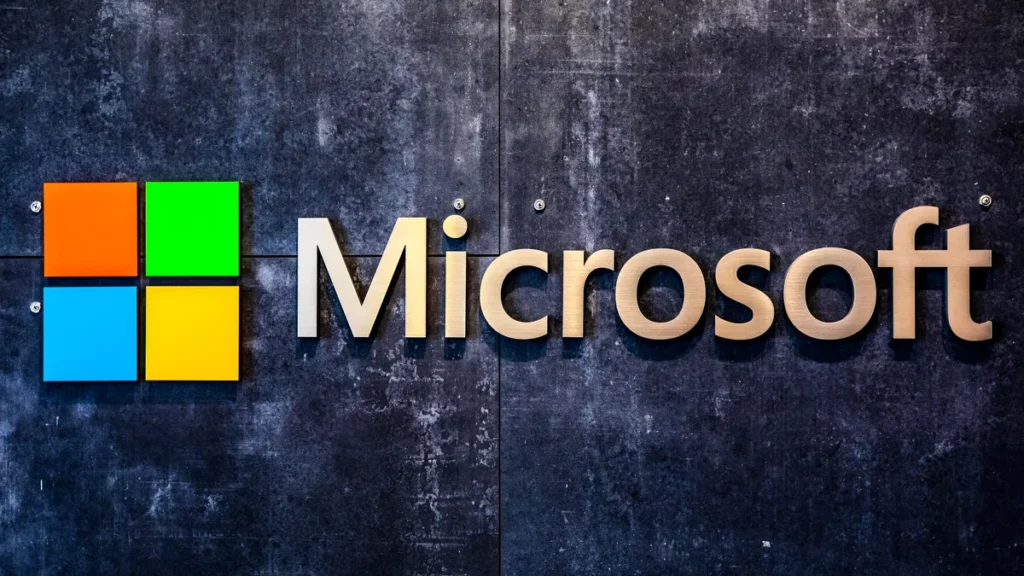When Bill Gates was a guest on a radio broadcast in 1984, he discussed his vision of personal computers in every home. Gates emphasized in this important talk how graphics have the opportunity to completely transform computer usability and accessibility. According to him, the addition of graphics will make using computers more enjoyable and easier because they will be able to display realistic documents, eye-catching text, and photographs. Since it anticipated the eventual broad popularity of graphical operating systems like Windows and the direction of personal computing, it was prescient to place such a high priority on graphical user interfaces.
Gates also introduced an early concept of artificial intelligence during the interview. He talked about the ambitious goal of getting computers to “learn” in a manner similar to humans. Gates envisioned a future where, after using a computer for some time, users would be able to refer back to previous actions without needing to repeat commands. He explained that computers would eventually recognize mistakes and assist users in the same way a human coworker might, thereby significantly enhancing the user experience. This vision highlighted Gates’ forward-thinking approach to computing, foreseeing a time when computers would become intuitive partners in everyday tasks.
The interview, which took place on November 17, 1984, was part of “The Famous Computer Cafe,” a tech-centric radio show from the mid-1980s. The lost tapes of these interviews were recently found and digitized by Kay Savetz, a podcaster and web publisher. Savetz emphasized the historical value of these interviews, describing them as a “time capsule” of the microcomputer revolution. He noted that the interviews provided contemporary accounts of the dawn of the personal computing era, untainted by nostalgia and offering a genuine glimpse into the technological optimism of the time.
At the time of the interview, Gates had just turned 29, and Microsoft was a relatively young company with fewer than 900 employees. The penetration of personal computers in the US was still in its infancy, with only 8.2% of households owning a PC, according to the US Census Bureau. Despite this, Gates confidently predicted that PCs would become ubiquitous, envisioning a future where there would be a machine on every desktop and in every home. This prediction, which might have seemed overly optimistic at the time, underscored Gates’ belief in the transformative power of personal computing.
Microsoft refers to Bill Gates’ idea of “softer software,” which is computers that can learn and identify user behavior. He realized that this was a difficult field of study, but he thought it was necessary to improve the use and intuitiveness of computers. In an effort to get computers to that degree of capability, Gates characterized “softer software” as an extremely challenging area of research. Regarding the comparison between this concept and artificial intelligence, Gates acknowledged it but explained that the name AI carried a lot of negative connotations, such as robots and global dominance. Rather, “softer software” referred to incremental improvements in machine intelligence and user responsiveness. It was crucial to make this distinction because it put AI in a more approachable and less scary perspective.
In the 1984 interview, Gates mentioned that achieving human-level intelligence in software was a distant goal. He noted that “once software gets 100% soft, then we will have achieved human level of intelligence,” but he acknowledged that this milestone was far off. This realistic appraisal of the challenges ahead demonstrated Gates’ deep understanding of the complexities involved in developing advanced AI.
The newly unearthed interview offers a fascinating glimpse into Gates’ early thoughts on AI and his vision for the future of personal computing. His insights from nearly four decades ago underscore the foresight and innovative thinking that have been hallmarks of his career. While spokespeople for Gates and Microsoft did not respond to requests for comment from Business Insider, the historical significance of the interview remains clear. Gates’ early ideas about AI and user-friendly computing continue to resonate as technology evolves and shapes our world.
Reflecting on the progress made since Gates’ 1984 interview, it’s evident that many of his predictions have come to fruition. Personal computers are now ubiquitous, and graphical user interfaces have become standard. AI has progressed significantly, with applications in various domains, from virtual assistants to predictive analytics. Companies like Microsoft have continued to innovate, integrating AI into their products and services, thereby enhancing user experiences and creating new opportunities for productivity and creativity.
Gates’ vision for a future where computers are intuitive and capable of learning from users’ actions is increasingly becoming a reality. The development of machine learning algorithms and neural networks has enabled computers to perform tasks that require a level of understanding and adaptability previously thought to be the exclusive domain of humans. This progress is a testament to the ongoing efforts of researchers and developers who have built upon the foundational ideas Gates discussed in the 1980s.
An incredible historical record that demonstrates Bill Gates’ forward-thinking approach to computing and artificial intelligence is his 1984 interview. Many of the developments that have formed the current state of technology were foreseen by him, as seen by his emphasis on graphical displays, user-friendly interfaces, and the ability for computers to learn from their users. Gates’s early discoveries continue to inspire us and serve as a reminder of the revolutionary potential of innovation as we investigate the prospects of artificial intelligence and personal computers.
If you like the article please follow on THE UBJ.
